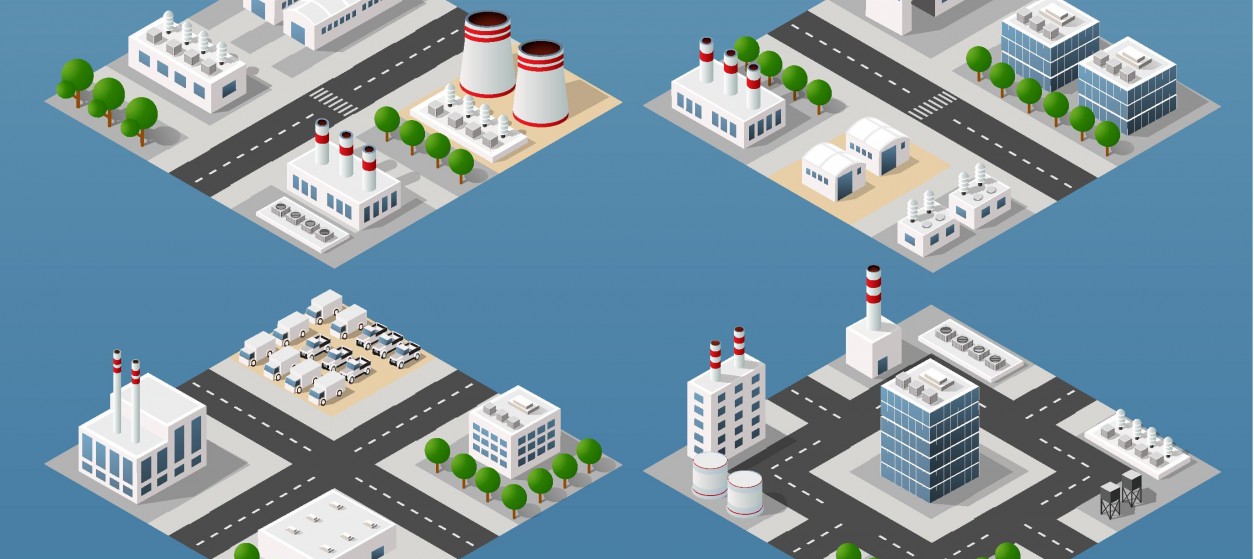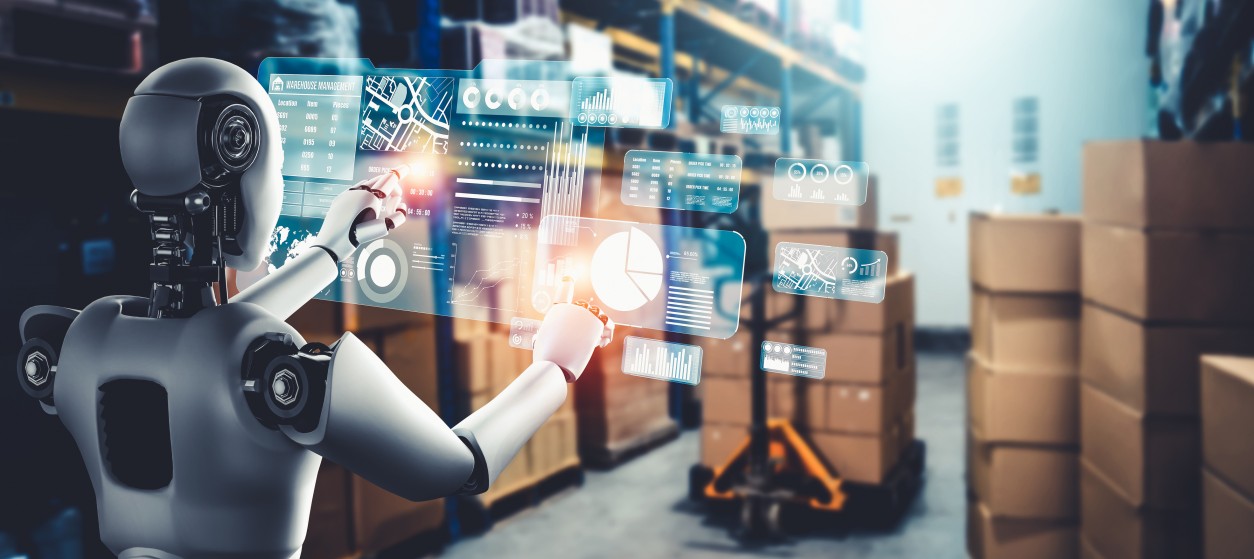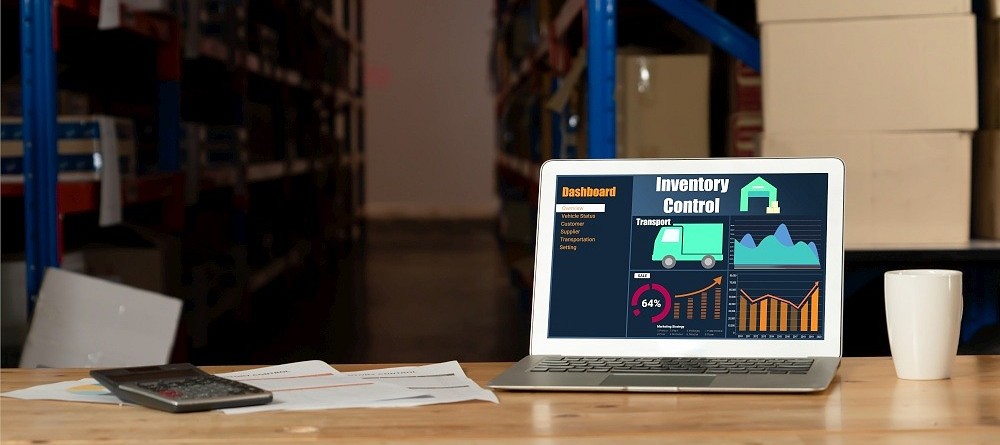?he world of industrial manufacturing has undergone vast digital transformation over the years, with the incorporation of technology and automation. One of the most recent transformations concerns the digitization of physical processes based on cyber-physical systems and internet connected devices, a concept commonly referred to as Industry 4.0. With this revolution came the need for better resource management and optimization. The Enterprise Resource Planning (ERP) system caters to such needs by enabling businesses to automate business processes, streamline communication, and improve overall operational efficiency to have a competitive edge. Nowadays, businesses seek to increase agility, collect real-time insights, and leverage emerging technologies to make data-driven decisions – all of which depend on the innovation of ERP systems. Therefore, modern enterprises must have a sound understanding of the future of ERP systems, including the main ERP trends and technologies on the horizon that are expected to bring immense value and business benefits to industrial organizations.
Evolution of ERP Systems
The future of ERP systems is all about bringing efficiency, scalability, and speed to businesses’ operations. Therefore, the classic ERP system must need to evolve to accommodate Industry 4.0 applications. For instance, smart factories based on sensors and other intelligent devices will become more prevalent and should be integrated into ERP systems. Moreover, traditional ERP systems were originally designed for on-premise solutions. In the Industry 4.0 era however, cloud-based systems are increasingly becoming more popular, which enable better integration with emerging technologies such as Big Data and Artificial Intelligence (AI). Hence, the future of ERP systems should be designed to be scalable and adaptable to a company’s specific needs. The integration of Artificial Intelligence (AI), Machine Learning (ML), and advanced analytics will be crucial for future ERP platforms. The future ERP systems should not only include operational management tools. Rather they must also integrate data-driven decision-support tools that take optimal decisions based on AI-driven evidence.
SaaS ERP Trends
The advent of cloud computing has also given rise to a growing trend in the deployment of Software as a Service (SaaS) systems in the manufacturing industry. It is where the ERP system is offered as a cloud service, supported by a subscription model. It is a trend that has been around for a while, but it is constantly gaining momentum in the manufacturing industry. This trend is an excellent opportunity for businesses that do not want to invest in the infrastructure that comes with on-premises deployment. SaaS-based ERPs also resolve several of the issues associated with traditional ERP systems, such as scalability, accessibility, and security. Manufacturers can therefore leverage SaaS-based ERPs for more comprehensive and scalable supply chain management to ensure that their processes are agile, automated, and less dependent on manual intervention.
Hybrid (Cloud and On-Premise) ERP Solutions
In the future, many industrial organizations are likely to opt for hybrid ERP solutions. A Hybrid ERP solution is designed for companies that want to leverage the benefits of cloud ERP solutions while still utilizing their existing on-premise ERP applications and installation. It is an ERP approach that allows manufacturers to leverage the scalability and agility still managing provided by cloud ERP while their business-critical processes with on-premise ERP solutions. Nowadays, organizations pave the way to seamless integration of cloud-hosted software into their on-premise deployment, which enables better collaboration between their employees and their departments, while improving the management of all operations. In this context, hybrid ERP can provide the best of both worlds, with seamless data integration across all platforms. It can also create a natural path for a cloud-based migration if the company decides that it’s time to jump into the cloud entirely.
Future ERP Systems Contributing to Sustainability and Compliance Processes
In recent years, the manufacturing industry has undergone remarkable change towards sustainability, which is at the very top of the social and political agendas worldwide. Thus, many companies are looking to become environmentally responsible. It is therefore essential for manufacturers to ensure that their production processes are efficient, sustainable, and compliant with regulations. Future ERP systems must provide critical support in handling regulatory compliance and environmental sustainability challenges, as well as the management of various industry mandates. Thus, future ERP systems are expected to provide greater visibility into production processes, and their impacts, towards enabling manufacturers to make data-driven decisions about their operations. In this direction, the next generation of ERP systems will provide the means for tracking and tracing products and production processes based on concepts like Digital Product Passports (DPPs).
Future ERP systems must go beyond traditional resource management and incorporate sustainability parameters into their functionality. Tracking CO2 emissions and waste parameters is crucial for businesses to understand their environmental footprint and make informed decisions. By integrating sustainability metrics into ERP systems, manufacturers will be able to monitor resource consumption, identify areas for improvement, and implement eco-friendly practices. Additionally, having real-time visibility into sustainability parameters will enable companies to comply with environmental regulations and meet sustainability goals. Future ERP systems must therefore prioritize environmental sustainability by providing comprehensive tracking and analysis of CO2 emissions and other waste parameters within the production processes.
Future ERP’s Importance for Supply Chain Resilience and Predictive Maintenance
In recent years, supply chain resilience has become a very critical concern for manufacturers. Consider for example the year of the COVID19 pandemic outbreak, when manufacturers were confronted with large scale disruptions of their supply chains and were obliged to develop rapid manufacturing responses. This crisis revealed the need for increasing supply chain resilience to ensures that industrial organization can effectively adapt to disruptions that may occur, mitigating the risks associated with supply chain failures. ERP systems are already vital to supply chain resilience, since they enable companies to monitor supplier performance, anticipate demand, monitor inventory levels, and respond to fluctuations in demand and supply. Future ERPs can play a crucial role in supporting supply chain resilience by managing information about potential disruptions. This includes for example collecting and analyzing data on various factors that can impact the supply chain, such as natural disasters, geopolitical events, transportation delays, and supplier risks. To this end, ERPs can collect real-time data from multiple sources, including sensors, IoT devices, and external data feeds. The analysis of this data can provide early warning signals and enable proactive decision-making. Moreover, by integrating this information ERPs can help businesses identify potential disruptions, assess their impact, and develop contingency plans to mitigate the risks. This proactive approach to managing disruptions can enhance the agility and resilience of the manufacturing value chains, while at the same time enabling businesses to respond effectively to unpredictable events.
Note that the nature of Industry 4.0 also means that predictive maintenance is becoming increasingly important for businesses. This is because predictive maintenance provides real-time insights on machine and asset performance, including information about the required maintenance schedules. Hence, future ERP systems must provide support for predicting and anticipating asset failures to help manufacturers maintain the integrity and reliability of their equipment.
Future ERP and Customer Experience
The customer’s experience has always been one of the most important aspects of the manufacturing industry. With the rise of intelligent systems, machine learning, and customer-driven manufacturing, the customer experience is evolving as well. Future ERP systems must be designed to provide exceptional customer service and experience. Thus includes, among others, improved automation, enhanced communication, and an increase in customer-related data visibility at every step of the manufacturing process. In several cases ERP systems must comprise and offer CRM (Customer Relationship Management) operations as well, to ensure customer centric and customer driven workflows.
Overall, ERP systems have been an essential part of the manufacturing industry for several decades. Nevertheless, the transition to Industry 4.0 has brought with it changes in how the manufacturing industry operates, and it’s time for ERP systems to adapt. The future of ERPs is all about providing faster, smarter, and more efficient solutions for automation, control, and management. Future ERPs must be designed to meet the specific needs of businesses, delivering superior customer experience, supply chain resilience, predictive maintenance, sustainability, and compliance. By embracing innovative solutions, such as SaaS and Hybrid ERPs, manufacturers can unlock the full potential of Industry 4.0 and take advantage of emerging technological trends.










